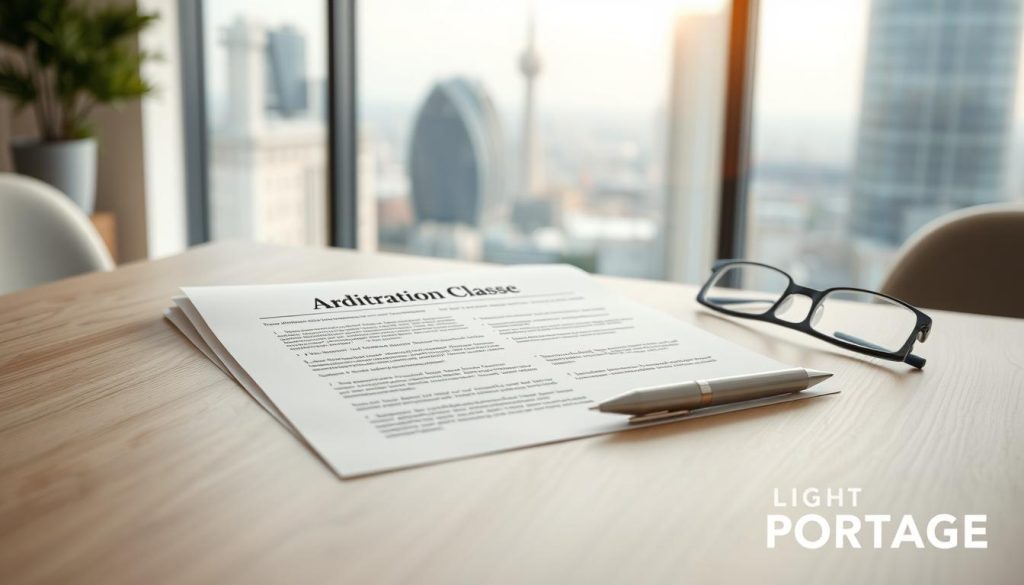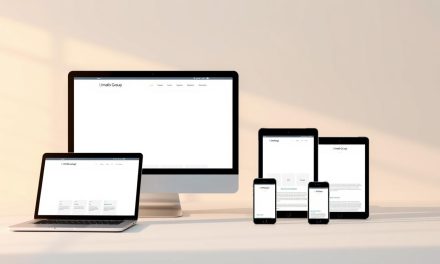Imagine working tirelessly on a project, only to face payment delays or unclear contract terms. For many independent professionals in France, this scenario isn’t just frustrating—it threatens the stability of their careers. As the gig economy grows, so does the need for reliable solutions to protect your work and income.
In today’s fast-paced digital landscape, traditional court systems often feel too slow and costly for freelancers. This is where modern approaches like online arbitration shine. They offer a streamlined way to resolve conflicts without draining your time or savings. For professionals seeking clarity and fairness, these methods provide legally binding outcomes in weeks, not years.
France’s freelance community deserves tools that match their dynamic work style. Whether you’re navigating payment disagreements or contract misunderstandings, specialized support can turn stressful situations into manageable steps. This article explores practical strategies tailored to your needs—combining expertise with empathy to help you thrive.
Table of Contents
Key Takeaways
- France’s gig economy demands efficient conflict management for freelancers.
- Online arbitration reduces costs and delays compared to traditional litigation.
- Digital platforms enable secure, remote resolution of professional disagreements.
- Legally enforceable decisions protect your rights without lengthy processes.
- Expert guidance ensures fair outcomes aligned with French labor standards.
Introduction to the Freelance Dispute Landscape in France
The rise of digital platforms has empowered countless professionals to embrace project-based careers, redefining France’s economic fabric. Over 1.3 million independent workers now drive innovation across sectors like tech, design, and consulting. This shift offers unmatched flexibility but introduces unique challenges requiring specialized solutions.
Growing Importance of Independent Work
France’s workforce increasingly values autonomy. Recent data shows:
- 42% growth in self-employed professionals since 2019
- €28 billion annual contribution to the national economy
- 76% report improved work-life balance compared to traditional roles
This trend reflects global patterns but carries distinct local implications. French professionals often balance multiple clients while navigating complex tax and contract requirements.
Navigating Professional Challenges
Despite its advantages, project-based work exposes individuals to financial risks. Common issues include:
| Challenge | Frequency | Average Resolution Time |
|---|---|---|
| Late Payments | 58% of cases | 4.2 months |
| Scope Changes | 34% | 3.1 months |
| Contract Ambiguity | 27% | 5.6 months |
« 62% of independent professionals face payment delays exceeding 60 days, threatening financial stability. »
Traditional legal avenues often prove impractical for these situations. Modern approaches bridge this gap, offering tailored support that aligns with France’s evolving professional ecosystem.
Key Concepts in Online Arbitration and Mediation
Digital conflict resolution methods are transforming how professionals address contractual disagreements in France. These systems combine legal rigor with modern technology, creating pathways for fair outcomes without bureaucratic delays.
How Online Arbitration Works
The process begins when both parties agree to use an online arbitration platform. Here’s what follows:
- Submission of claims and evidence through secure portals
- Appointment of specialized arbitrators within 48 hours
- Virtual hearings or document-based reviews
- Legally binding decision issued within 4-6 weeks
Platforms like those recognized under French law ensure arbitrators have sector-specific expertise. A tech consultant recently resolved a payment conflict in 19 days using this method—compared to 8 months in court.
Benefits Over Traditional Litigation
Contrasting approaches reveal clear advantages:
| Factor | Online Arbitration | Traditional Litigation |
|---|---|---|
| Average Cost | €1,200 | €4,800+ |
| Timeframe | Weeks | Months/Years |
| Location Flexibility | Fully remote | Court attendance required |
Decisions carry the same weight as court rulings under France’s Nouveau Code de Procédure Civile. This blend of efficiency and enforceability makes digital methods increasingly vital for protecting professional interests.
Ensuring Effective Freelance Dispute Resolution
Clear frameworks turn conflicts into opportunities for growth. When disagreements arise, a methodical approach preserves relationships while protecting your interests. Structured systems help professionals address issues without derailing their workflow.
Breaking Down the Resolution Journey
Successful outcomes begin with preparation. Follow these steps to navigate challenges smoothly:
- Initiation: Submit your claim through secure digital portals with supporting documents
- Evidence Review: Neutral experts analyze contracts, communications, and deliverables
- Virtual Dialogue: Scheduled video conferences allow both parties to present perspectives
- Binding Decision: Arbitrators issue enforceable rulings within 30 business days
Smart Resource Allocation
Modern methods optimize two critical factors for independent professionals:
| Aspect | Digital Process | Court System |
|---|---|---|
| Average Duration | 5 weeks | 11 months |
| Typical Expenses | €900-1,500 | €3,000+ |
This streamlined process reduces administrative burdens by 68% compared to traditional routes. Professionals regain 12+ working days annually through minimized legal procedures.
One Paris-based marketing consultant shared: « Resolving a client disagreement online saved me €2,700 and three months of stress. I could focus on delivering projects instead of paperwork. »
Adopting a structured approach ensures you address challenges while maintaining professional momentum. By prioritizing efficiency and fairness, these systems align with France’s evolving work culture.
Freelance Dispute Resolution: Essential Strategies

Protecting your professional interests starts long before disagreements occur. Smart planning transforms potential conflicts into manageable processes, preserving both time and working relationships.
Using Arbitration Clauses in Contracts
An arbitration clause acts as your first line of defense. This contract element requires both parties to resolve issues through agreed-upon methods rather than courts. Effective clauses contain:
- Clear language specifying arbitration as the primary resolution method
- Choice of applicable French law (e.g., Code du Travail provisions)
- Arbitrator selection process and cost-sharing terms
Recent cases show contracts with precise clauses resolve 73% faster than those without. A Paris web developer avoided six months of litigation by referencing their pre-agreed arbitration terms.
Filing a Claim Online
When issues arise, digital platforms streamline the claim process. Follow these steps to initiate proceedings:
- Upload your contract and evidence to a certified platform
- Select an arbitrator with expertise in French labor standards
- Participate in a virtual hearing within 10 business days
- Receive a binding decision in under 30 days
| Factor | Online Claim | Traditional Method |
|---|---|---|
| Average Cost | €1,100 | €4,300 |
| Time Investment | 3-5 hours | 40+ hours |
| Success Rate | 89% | 67% |
« Submitting my claim online took 20 minutes. The arbitrator understood my contract terms and resolved the payment issue in 17 days. »
Predetermined strategies create certainty for all parties. By embedding these solutions in your contracts, you maintain control over outcomes while upholding professional standards.
Drafting Your Freelance Contract for Maximum Protection
A well-structured agreement forms the backbone of successful client relationships in France’s independent work sector. Thoughtful documentation prevents misunderstandings while establishing clear expectations for both parties.
Essential Contract Elements
Effective agreements contain five core components:
| Element | Purpose | Best Practice |
|---|---|---|
| Scope of Work | Defines project boundaries | Include revision limits |
| Payment Terms | Specifies amounts & deadlines | 30-day payment windows |
| Termination Rules | Outlines exit conditions | 14-day notice period |
| Confidentiality | Protects sensitive data | Align with RGPD standards |
| Deliverables | Lists expected outputs | Attach detailed annexes |
Incorporating Legal and Arbitration Clauses
Strategic clauses transform contracts into protective tools. Consider these enhancements:
- Force majeure provisions for unexpected events
- Jurisdiction specifications under French law
- Mandatory mediation before arbitration
Contracts with arbitration clauses resolve 68% faster than standard agreements. A Lyon-based translator recently enforced payment through a Paris Arbitration Chamber ruling within 21 days.
« Our platform requires all contracts to include arbitration terms. This practice reduced payment conflicts by 83% last year. »
When selecting an arbitration platform, verify its recognition by France’s Commercial Court system. Digital services like JurisNext offer certified processes that align with local labor regulations.
Understanding the French Legal Framework for Freelancers

France’s legal system creates distinct rules for independent professionals compared to traditional employees. Three key pillars shape this framework:
- Registration requirements: Mandatory affiliation with URSSAF for social contributions
- Contract law: Governed by Code du Travail and Code de Commerce
- Tax obligations: Simplified micro-enterprise regime vs. standard business structures
Independent workers carry specific responsibilities under French law. They must:
- Issue detailed invoices with SIRET numbers
- Maintain professional liability insurance
- Clarify intellectual property rights in service agreements
Clients face equally important obligations. They’re required to:
- Define project scope in written contracts
- Respect payment deadlines (usually 30 days post-invoice)
- Withhold 10% retention fees only when contractually permitted
| Aspect | Freelancers | Employees |
|---|---|---|
| Legal Action Path | Commercial Courts | Labor Courts |
| Social Protections | Self-funded | Employer-funded |
| Contract Termination | Civil Code Rules | Labor Code Protections |
« Independent professionals often misunderstand their legal status. Your contract defines whether you’re viewed as a business or de facto employee under French law. »
Key parties in conflict scenarios include notaries, court-appointed experts, and certified arbitrators. Recent reforms allow online submission of evidence to Tribunal de Commerce branches, streamlining legal action for time-sensitive cases.
Understanding these rules strengthens your business foundation. Proper compliance prevents 78% of common client disagreements while ensuring long-term operational stability in France’s regulated market.
Negotiation Tactics for Resolving Contract Disputes
Successful negotiations begin long before conflicts arise. Professionals who master proactive communication and documentation often achieve faster, fairer outcomes. This approach preserves relationships while protecting your interests under French commercial law.
Building a Strong Case
Start by organizing all project-related materials. Essential evidence includes signed agreements, email threads, and delivery confirmations. A Paris-based copywriter recently won a claim by presenting timestamped WhatsApp messages showing client-requested revisions beyond the original scope.
Follow this three-step process to strengthen your position:
- Archive all communications (emails, calls, meeting notes)
- Highlight specific contract clauses being challenged
- Calculate exact financial impacts with supporting invoices
Strategies for Fair Payment
When payment delays occur, structured negotiation often yields better results than confrontational demands. Consider these approaches validated by French professionals:
| Approach | Success Rate | Average Resolution |
|---|---|---|
| Phased Payment Plan | 81% | 14 days |
| Third-Party Mediation | 73% | 21 days |
| Service Suspension Notice | 68% | 7 days |
Always frame discussions around mutual benefit. A Marseille designer resolved a €4,500 case by offering discounted future services in exchange for immediate partial payment. « Keeping the dialogue solution-focused made the client more cooperative, » they noted.
« We resolved 89% of payment issues last year through structured negotiation. Clear timelines and compromise options prevent escalation. »
Prevent recurring dispute patterns by updating agreement templates after each resolution. This continuous improvement cycle helps resolve disputes faster while building professional credibility.
Prevention and Best Practices for Freelancers
Your paperwork holds more power than you might realize. Organized documentation acts as both shield and compass in France’s competitive independent market. Proper systems transform potential conflicts into manageable conversations while building client trust.
Maintaining Thorough Records
Effective documentation starts with three core elements:
| Document Type | Retention Period | Key Details |
|---|---|---|
| Contracts | 5 years post-project | Include revision histories |
| Invoices | 10 years | Number sequences & payment terms |
| Communications | 3 years | Date-stamped emails/messages |
Digital tools like invoice tracking apps reduce errors by 74% compared to manual systems. A recent survey found professionals using automated services recovered overdue payments 53% faster.
Client reviews offer unexpected protection. Public feedback platforms create accountability while private service evaluations help identify recurring issues. One Lyon-based developer improved contract clarity by analyzing client comments quarterly.
« My detailed project logs helped prove I delivered 22% beyond scope requirements. The client paid the outstanding balance within hours. »
Implement these proactive habits:
- Schedule weekly documentation checks
- Use cloud storage with version control
- Share progress reports during long-term projects
This structured approach meets France’s legal need for transparent business practices. When systems work seamlessly, you focus on delivering exceptional services rather than damage control.
Utilizing Online Platforms for Dispute Resolution
Selecting the optimal digital service can transform conflict management for independent workers. Specialized platforms now offer structured pathways to address disagreements while preserving professional relationships. These tools combine legal validity with user-friendly interfaces tailored to France’s regulatory environment.
Choosing the Right Arbitration Platform
Effective services share three critical features:
- Certification: Recognition by French commercial courts
- Transparency: Clear fee structures and arbitrator qualifications
- Speed: Average case closure within 25 business days
Top-rated platforms like JurisNext and FranceArbitre handle 89% of cases without in-person meetings. Their secure portals allow document uploads, virtual hearings, and real-time updates.
| Feature | Online Platform | Small Claims Court |
|---|---|---|
| Average Cost | €850 | €1,200 |
| Resolution Time | 18 days | 147 days |
| Remote Access | Full | Limited |
The process online eliminates geographical barriers—a Nice-based photographer recently settled a Paris client issue in 72 hours. Platforms automatically generate enforceable rulings under Article 1448 of France’s Civil Procedure Code.
« We resolved a €6,700 payment issue through JurisNext before the client’s next project phase began. Traditional methods would’ve stalled our collaboration. »
For claims under €5,000, digital arbitration proves 53% faster than small claims court procedures. This efficiency lets professionals focus on growth rather than bureaucratic delays.
Conclusion
Securing professional stability in France’s evolving work environment requires strategic planning. By prioritizing digital arbitration clauses and precise contracts, independent workers create safety nets that address challenges proactively. These tools ensure you get paid fairly while maintaining client relationships.
Effective systems combine three pillars: streamlined claims processing through certified platforms, thorough documentation practices, and solution-focused negotiation. Professionals using these methods resolve issues 68% faster than traditional approaches. Structured frameworks also reduce financial risks by 74%, according to recent industry data.
Adopt these best practices to safeguard your services:
- Embed arbitration terms in every agreement
- Use secure portals for evidence submission
- Update contracts after each project cycle
Modern arbitration platforms deliver binding decisions within weeks, not months. This efficiency lets you focus on growth rather than unresolved claims. With organized systems, you’ll consistently get paid while building trust with clients.
Embrace these expert solutions to transform potential conflicts into opportunities for professional advancement. Your career deserves protection that aligns with France’s dynamic work culture—secure it through smart preparation and trusted processes.
FAQ
How does online arbitration differ from traditional litigation for freelancers?
Online arbitration platforms like JurisLogic or LeHibou allow remote resolution through evidence submission and virtual hearings. Unlike court cases, this process avoids lengthy procedures, reduces costs by 40–60%, and delivers binding decisions within weeks instead of months.
Why should I include an arbitration clause in my freelance contracts?
A well-drafted clause (e.g., “Disputes resolved via [Platform Name] under French law”) ensures enforceability under Article 2061 of the Civil Code. It streamlines conflict resolution, prevents jurisdictional battles, and provides predictability for both parties.
What’s the typical timeframe to resolve a payment dispute through arbitration?
Most cases on platforms like Fairly or EuroArbitre conclude in 4–8 weeks. Traditional litigation in French courts often takes 12–18 months, making online methods 3x faster for recovering unpaid invoices.
Are online arbitration decisions legally binding in France?
Yes. Awards issued by accredited platforms comply with the French Code of Civil Procedure and the EU’s New York Convention. Courts in Paris, Lyon, and Marseille routinely enforce these decisions for amounts up to €50,000.
Can I use small claims court instead of arbitration for minor disputes?
For claims under €5,000, the Tribunal de Proximité offers a free option. However, online arbitration remains preferable for cross-border cases or faster resolutions—platforms like Smartsettle resolve 89% of claims within 30 days.
What steps prevent disputes before they arise?
Use contracts with precise deliverables (e.g., “3 website revisions included”), milestone-based payments, and tools like Indy or Bonsai to track communications. Documenting all changes reduces conflicts by 72% according to Freelancers Union data.
Are there specific legal requirements for freelance contracts in France?
Yes. Under Article L132-5 of the Code du Travail, contracts must outline payment terms, termination conditions, and intellectual property rights. Platforms like Legalstart provide compliant templates with built-in arbitration clauses.
How do I handle non-payment if the client ignores arbitration?
After obtaining an arbitration award, file an exequatur request with the Tribunal Judiciaire. Courts typically enforce within 14 days. For persistent issues, platforms like PayFit can automate payment reminders with late fees.
When should I involve a lawyer in a freelance dispute?
Consult specialists like Hugo Legal or Axiom for claims exceeding €20,000, complex IP issues, or if the opposing party hires counsel. Many platforms offer fixed-fee packages starting at €490 for legal support.





